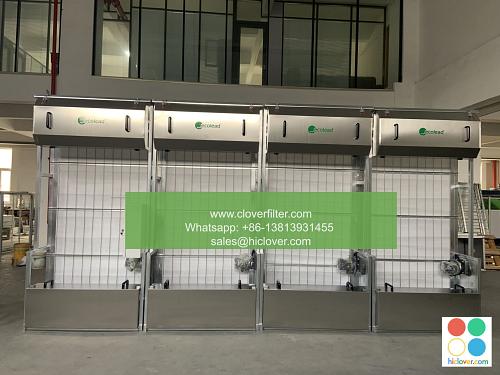The Benefits of Air Filter Comparisons: Improved Indoor Air Quality

Air filter comparisons play a crucial role in ensuring the indoor air quality of homes, offices, and industries. With the increasing awareness of the importance of indoor air quality, people are looking for ways to improve the air they breathe. One effective way to achieve this is by comparing different types of air filters and selecting the most suitable one for their specific needs.
Understanding the Importance of Indoor Air Quality
Indoor air quality refers to the quality of air inside buildings, which can be affected by various factors such as air pollution, moisture, and temperature. Poor indoor air quality can lead to respiratory problems, allergies, and other health issues. Air filters are designed to remove pollutants, dust, and other particulate matter from the air, thereby improving indoor air quality.
Key Benefits of Air Filter Comparisons
Comparing different air filters can help individuals and organizations make informed decisions about the best filter for their specific needs. Some of the key benefits of air filter comparisons include:
* Improved Indoor Air Quality: By selecting the right air filter, individuals can significantly improve the indoor air quality of their homes or offices.
* Increased Energy Efficiency: Some air filters are designed to be more energy-efficient than others, which can help reduce energy costs and minimize environmental impact.
* Enhanced Filtration Performance: Air filter comparisons can help individuals identify the most effective filters for removing specific pollutants, such as dust, pollen, or pet dander.
* Cost Savings: By selecting the right air filter, individuals can avoid costly repairs and replacements, as well as reduce their energy bills.
Application Areas for Air Filter Comparisons
Air filter comparisons are essential in various application areas, including:
* Residential Air Purification: Homeowners can compare different air filters to select the most suitable one for their homes, taking into account factors such as room size, air quality, and personal preferences.
* Commercial Air Filtration: Businesses and industries can compare air filters to select the most effective ones for their specific needs, such as removing pollutants, dust, and other particulate matter from the air.
* Industrial Air Quality Management: Industrial facilities can compare air filters to select the most suitable ones for their specific applications, such as removing hazardous pollutants, chemicals, and other toxic substances from the air.
* Healthcare Air Purification: Healthcare facilities can compare air filters to select the most effective ones for removing airborne pathogens, bacteria, and other microorganisms that can cause infections and diseases.
Factors to Consider When Comparing Air Filters
When comparing air filters, individuals should consider several factors, including:
* Filtration Efficiency: The ability of the filter to remove pollutants and particulate matter from the air.
* Flow Rate: The amount of air that the filter can handle, measured in cubic feet per minute (CFM).
* Pressure Drop: The amount of pressure required to push air through the filter, which can affect energy efficiency.
* Cost and Maintenance: The initial cost of the filter, as well as the cost of replacement and maintenance.
* Compatibility: The compatibility of the filter with existing HVAC systems or air purifiers.
Conclusion
Air filter comparisons are essential for improving indoor air quality, increasing energy efficiency, and reducing costs. By considering various factors and application areas, individuals and organizations can make informed decisions about the best air filter for their specific needs. Whether it’s for residential, commercial, industrial, or healthcare applications, air filter comparisons can help ensure that the air we breathe is clean, healthy, and safe. Air filter comparisons are a crucial step in achieving improved indoor air quality, and it’s essential to prioritize this aspect to create a healthier and more sustainable environment. You didn’t provide a prompt. Please give me a topic or a question, and I’ll be happy to help!

